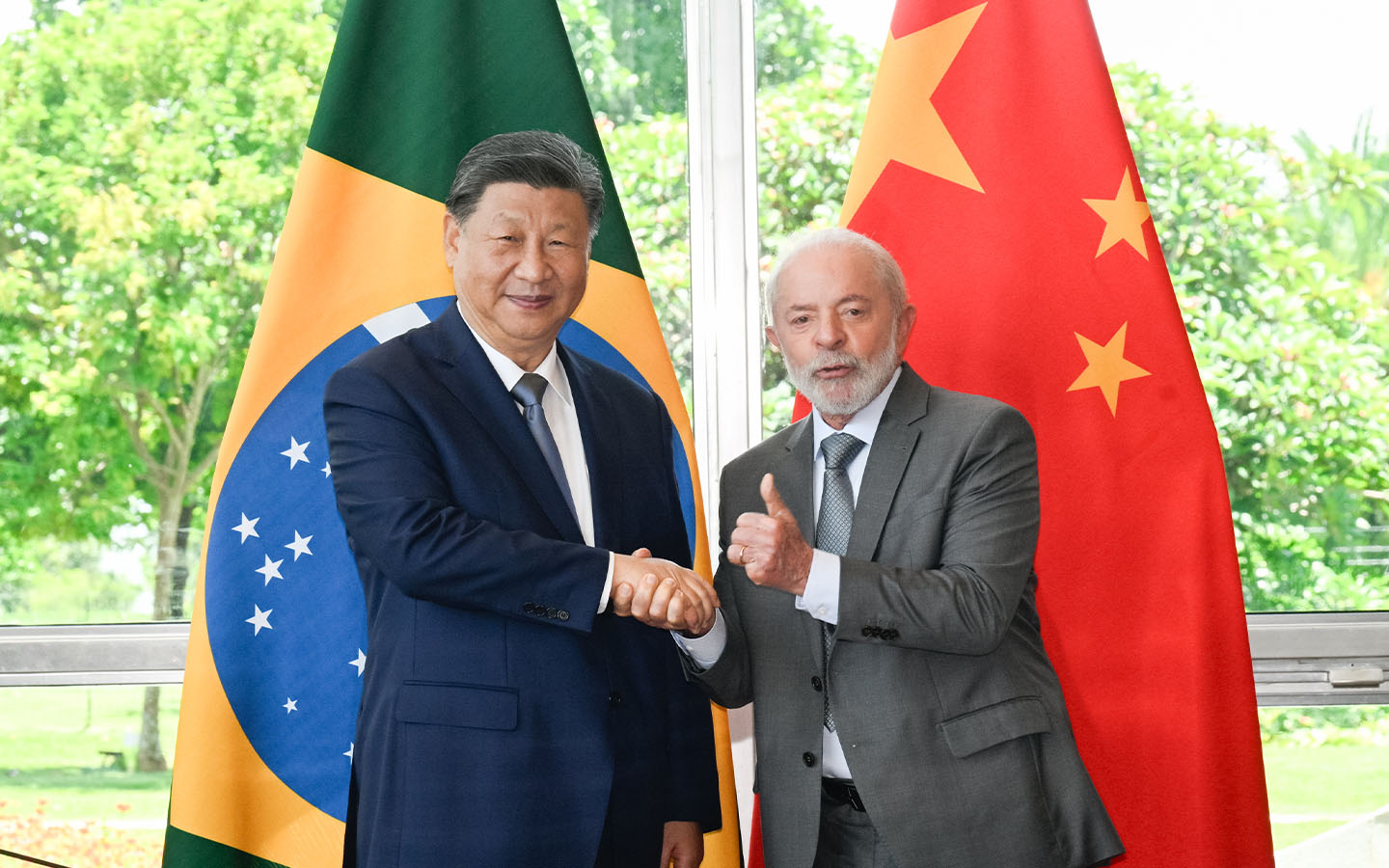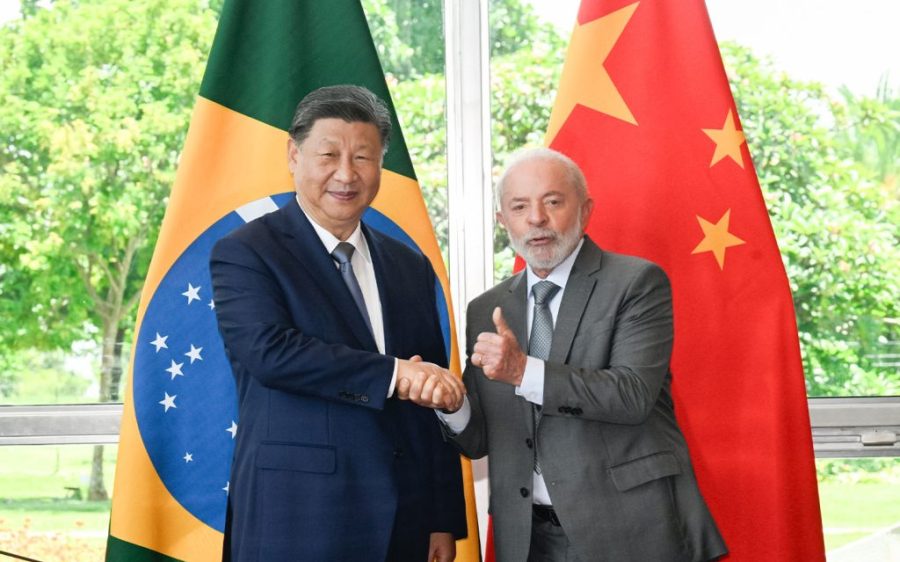Chinese President Xi Jinping and his Brazilian counterpart Luiz Inacio Lula da Silva have agreed to upgrade bilateral ties and signed dozens of cooperation agreements across key economic sectors, reports Reuters.
The two leaders agreed to find “synergies” between the Belt and Road Initiative, China’s flagship international infrastructure scheme, and Brazilian development goals. They also inked nearly 40 cooperation agreements in sectors including farming, communications, solar power and nuclear energy, strengthening economic ties between the two nations, which already enjoy more than US$150 billion in bilateral trade.
With Sino-Brazilian relations marking their 50th anniversary this year, the two countries also agreed to elevate ties as members of Beijing’s “community with a shared future for a more just world and sustainable planet.” Other countries that come under the rubric include Vietnam and Serbia.
“China-Brazil relations are now at their best moment ever,” Xi told media. Beijing, he added, was ready to work with Brazil to enrich relations and become “golden partners.”
[See more: Sino-Brazilian trade jumps nearly 10 percent between January and October]
China’s use of the “community with a shared future” appellation is “reserved for partners China considers truly special and irreplaceable,” Sunny Cheung, associate fellow for China studies with right-wing Washington think-tank the Jamestown Foundation, told Reuters. It underscores Brazil’s strategic importance as a leading voice in the Global South and as a “critical partner in ensuring China’s long-term economic and food security.”
New agreements signed during Xi’s state visit to Brasilia highlight that role, opening China’s market to Brazilian sorghum, fresh grapes, sesame and fishmeal and more. One deal, signed by Brazilian meatpacker BRF, will see the world’s largest chicken exporter set up shop in China’s Henan Province, investing nearly US$80 million in the purchase and expansion of a processed food factory.
On the high-tech end, Chinese low-Earth-orbit satellite company SpaceSail signed a deal with Brazilian state telecom Telebras to enter the market, providing competition to Elon Musk’s Starlink.
Geopolitically, Xi said the two countries should serve as an example of solidarity, cooperation, mutual benefit and common development for countries in the Global South, China’s state-run agency Xinhua reported.






